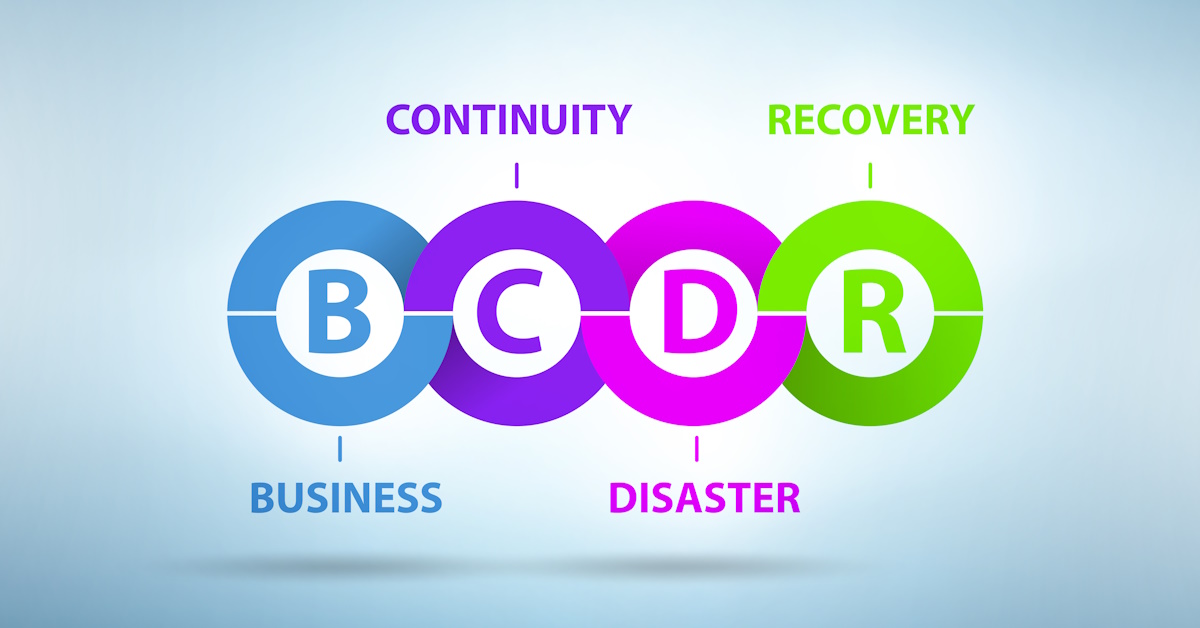Recent Posts
Categories

As a small business owner, you know that running a business is not easy. You have to deal with many challenges and risks every day. Competition, customer demands, regulations, operations and costs are a few things that might you keep you up at night.
But what if something unexpected happens that disrupts your normal operations and threatens your business survival? How would you cope with a natural disaster, a cyberattack, a power outage, or a pandemic? How would you recover your data, systems, and processes and resume your business as soon as possible?
These are the questions that business continuity and disaster recovery can help you answer. Business continuity and disaster recovery are two related but distinct concepts that can help you plan for and manage the impact of a crisis on your business. Let’s explore the differences.

What is Business Continuity?
Business continuity is the ability of your business to continue delivering your products or services to your customers during and after a disruptive event. It is not just about recovering from a disaster, but also about preventing or minimizing the damage and downtime.
Business continuity involves identifying the critical functions and resources of your business. This includes your employees, customers, suppliers, data, equipment, and facilities. It is about ensuring that they are all protected and available in case of an emergency.

Why is Business Continuity Important?
Business continuity is important for many reasons. First, it can help you maintain your reputation and trust with your customers, who expect you to provide them with consistent and quality service.
Second, it can help you reduce your losses and costs, such as lost revenue, lost customers, legal fees, fines, and penalties.
Third, it can help you comply with industry standards and regulations, such as the Health Insurance Portability and Accountability Act (HIPAA), the Payment Card Industry Data Security Standard (PCI DSS), and the General Data Protection Regulation (GDPR).
Additionally, business continuity can help you gain a competitive advantage over your rivals, who may not be as prepared or resilient as you are. It can be the difference of what keeps you in business or puts you out of business in the face of crisis. Learn more about the purpose of a business continuity plan.

What is Disaster Recovery?
Disaster recovery is often a subset of business continuity that focuses on restoring your business after a disaster. It may include the process of recovering your data from backups, restoring your systems to their normal state, and resuming your operations as quickly as possible.
Disaster recovery involves having a backup plan, a backup location, and a backup team that can execute the plan in case of an emergency. It is about getting your business back on its feet.

Why is Disaster Recovery Important?
Disaster recovery is important for many reasons. First, it can help you prevent or limit data loss, which can be costly and damaging to your business. Data loss can result from human error, hardware failure, software corruption, malware infection, theft, or natural disaster. This loss can affect your customer records, financial records, employee records, product information, and other vital information.
Second, it can help you avoid or reduce downtime, which can affect your productivity, efficiency, and profitability. Downtime can result from a system failure, network outage, power outage, or natural disaster. Downtime can affect your communication, collaboration, and coordination with your employees, customers, and suppliers.
Third, it can help you protect your business from cyber threats, such as ransomware, phishing, denial-of-service, and data breaches. Cyber threats can compromise your data, systems, and networks, and expose you to legal, financial, and reputational risks.
While business continuity and disaster recovery are separate concepts, they work hand in hand. They are both vitally important to a business’s success in the face of adversity. A business continuity plan is going to be all-encompassing to ensure your business continues no matter the threats or damages. A disaster recovery plan, on the other hand, is a portion of that plan that focuses on how to recover business data and operations.
Explore ISOCNET’s business continuity services or contact us today for a free consultation.



